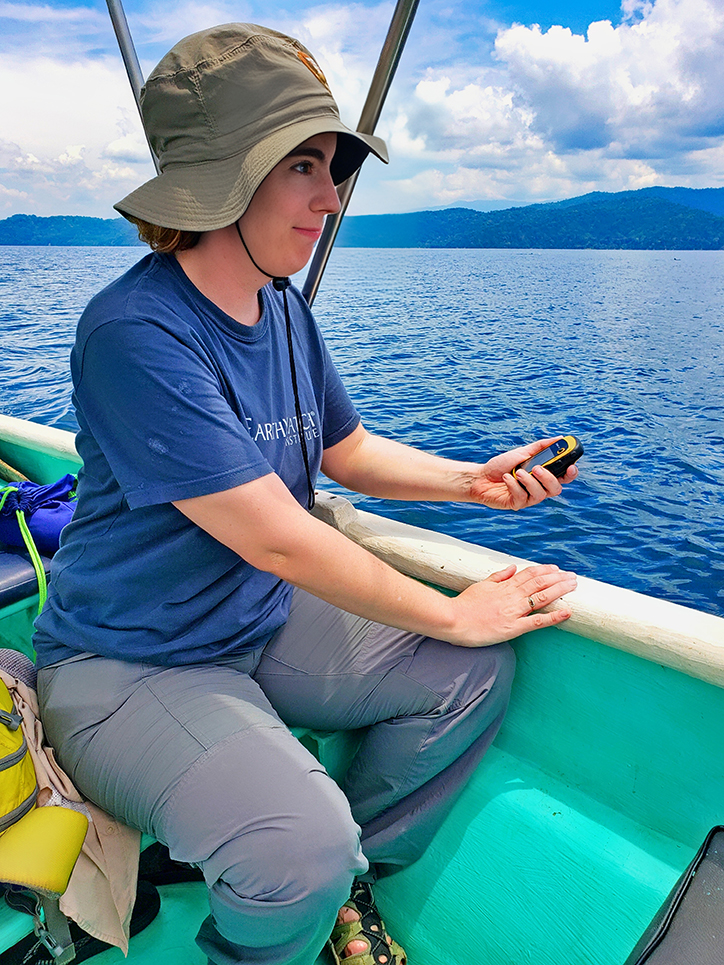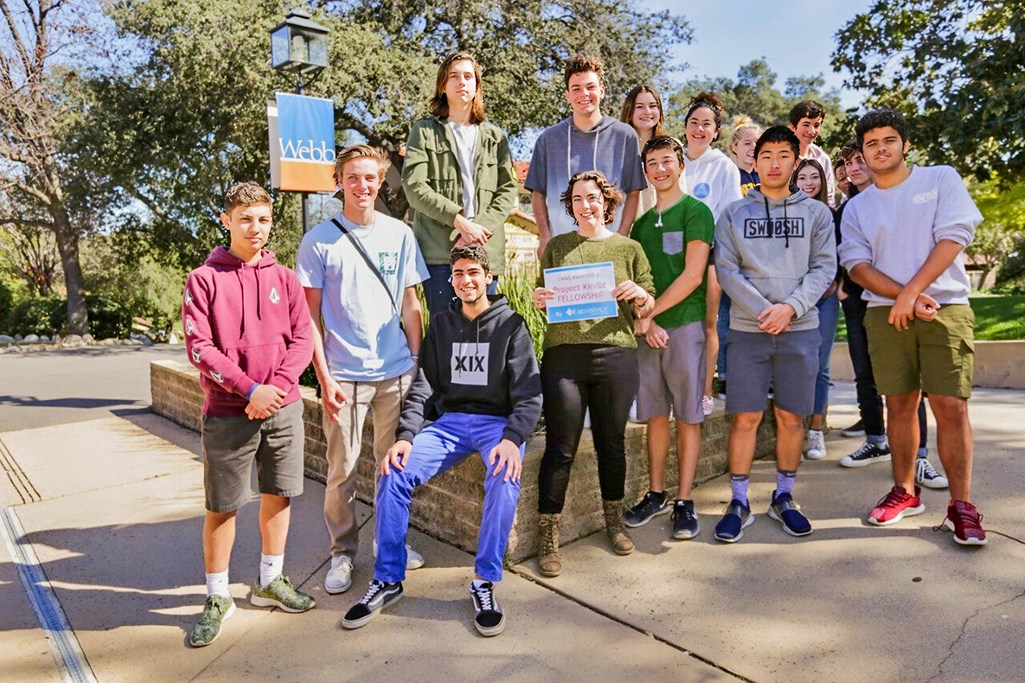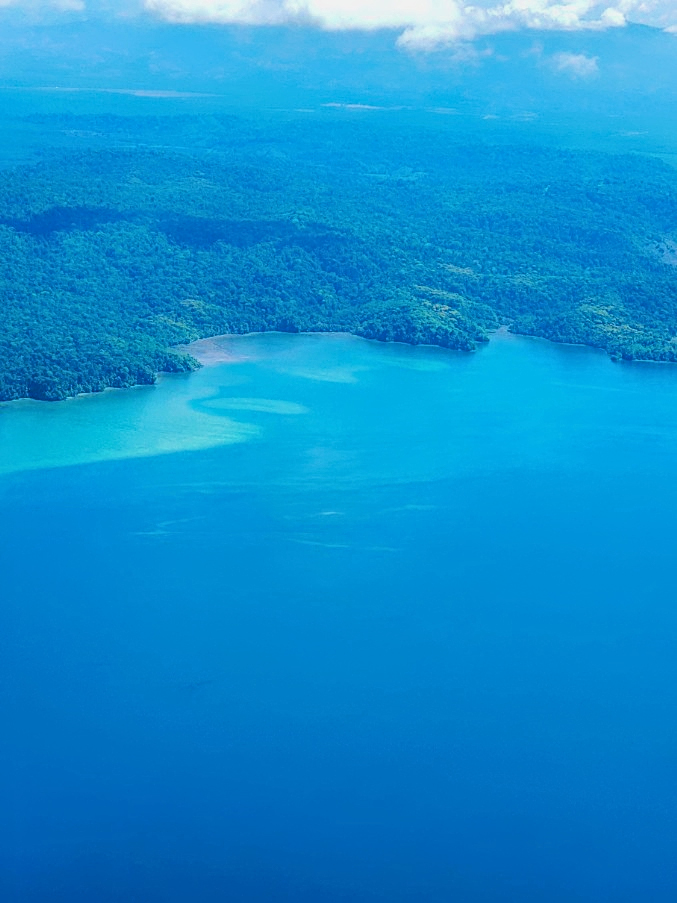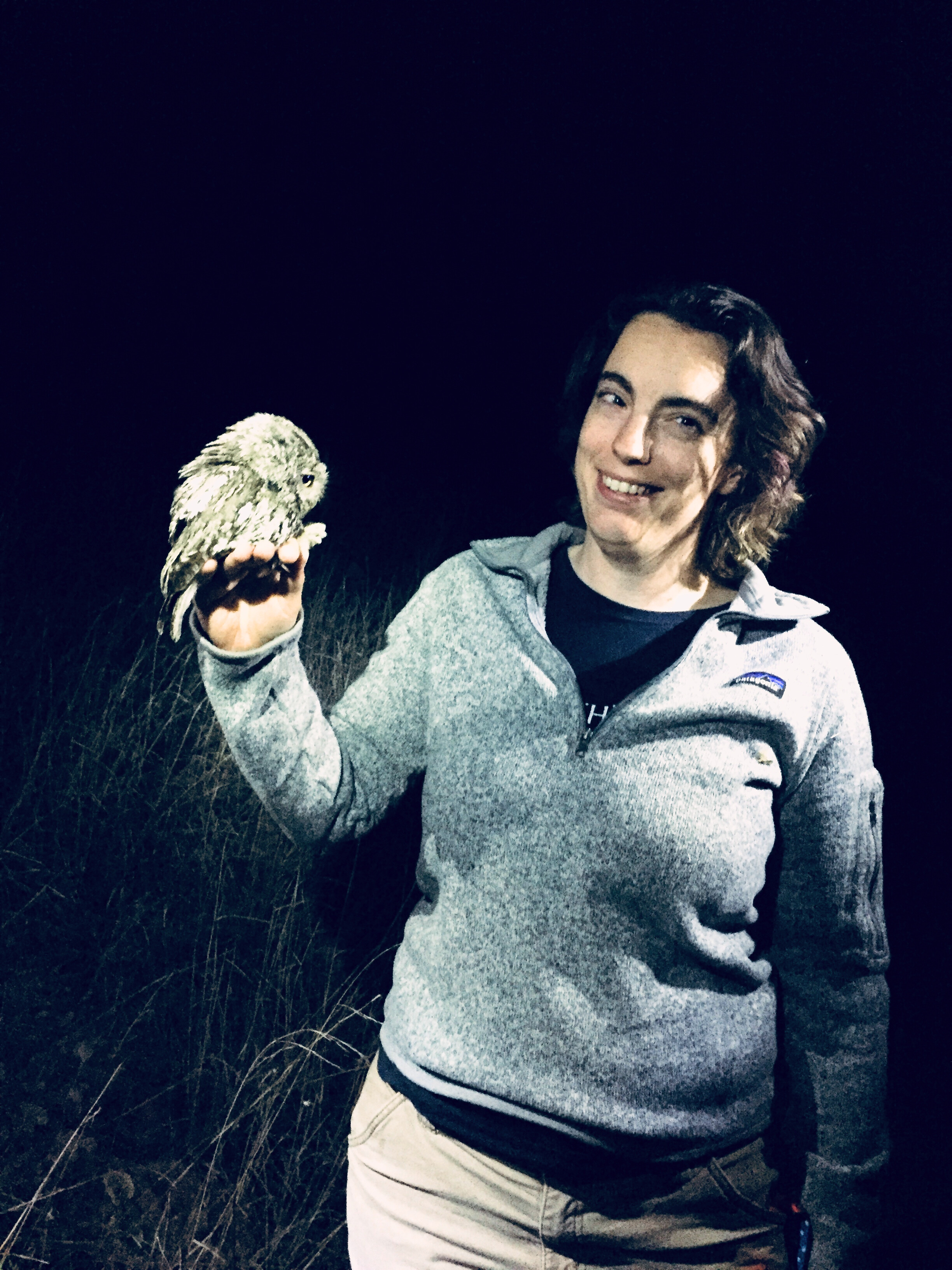Finding Direction Through Exploration
By Brendan Hyatt
Discovering a passion for science early on
Growing up, Taormina (Tara) Lepore was always outside. Growing up in a multi-generational household, their mother encouraged them to explore their passions, whatever form those passions took. As a kid, Tara was always "looking under rocks and picking up salamanders all day." As they got a little older, they gravitated toward dinosaurs: dinosaur toys, dinosaur books, and anything else related to the subject they could get their hands on.
In high school, as Tara immersed themselves in their Science and English coursework, one of their teachers applied for an Earthwatch Educational Fellowship. When Tara's teacher mentioned Earthwatch opportunities, Tara decided to apply, channeling their passion for paleontology into a series of application essays.
Sure enough, a few months later, the 17-year-old was on a plane to an archaeological excavation in Jackson Hole, Wyoming. It was the first time they had been on a plane alone, and more importantly, it was the first time they had left the network of friends and family that helped them manage their panic disorder and agoraphobia. In Tara's words, it felt like a "huge jump."
Stepping into the unknown
During Tara's time on the project, they worked with lead scientist Kenneth Cannon to excavate a site in Jackson Hole and help scientists understand the role Bison played in the economy and society of local Native American societies thousands of years ago. Tara's jump found them to be the youngest member of the expedition, and they were on the other side of the country with strangers from different walks of life. It was "exhilarating and terrifying and intellectually exciting, all at the same time."
Tara quickly found that getting outside their comfort zone had its upsides. With the support of the other expedition members, Tara jumped out of their comfort zone and into their work, digging through the soil in search of millennia-old traces of bones, tools, and other artifacts. At the same time, Tara was forming bonds with their fellow volunteers, taking full advantage of the opportunity to meet people from different walks of life. By the end of their time in Jackson Hole, these once-strangers felt like family.
Tara's time in Jackson Hole didn't just reaffirm Tara's longstanding interest in pursuing a career in science. It showed them that they can do hard and even initially scary things. "This experience taught me more about my personal capabilities than it solidified my decision to pursue science," said Tara. "It gave me the confidence to go out and explore different forms of fieldwork."
That wasn't the end of Tara's Earthwatch journey. In 2017, Tara wrote a guest post for our blog, reflecting on their Earthwatch experience's profound impact on their life and career.
This experience taught me more about my personal capabilities than it solidified my decision to pursue science. It gave me the confidence to go out and explore different forms of fieldwork.



I think the biggest thing for me was constantly feeling like I didn't belong, and constantly feeling like whatever experiences I had must have been some fluke, like, they must have just made a mistake and chosen me.
.

Finding direction through exploration
After and during college, Tara was still determining what path would spark the passion and sense of exploration they felt during their expedition. They worked in the private sector for a while, but it didn't scratch the itch. Since then, Tara has pursued a diverse set of opportunities in science, engaging with Earthwatch at every step of the way. They pursued a master's degree in Paleontology Museum Studies and worked as a high school teacher for six years.
During their time as a teacher, they participated in two more Earthwatch education initiatives: first, as an educator fellow researching owls in the Chiricahua Mountains, and second, as a teacher bringing their students to Costa Rica to study dolphins and sharks.
As an Earthwatch education fellow, Tara paid forward their transformative initial experience with Earthwatch, working with students to tag sharks, get up close and personal with dolphins, and engage with local communities and scientists. Tara taught in the field, engaged directly with science, and loved every moment of it. They fondly remember their students beaming after a long day in the water, engaging with beautiful creatures.
Breaking barriers in academia
This Earthwatch experience was one of the central experiences that drove Tara to pursue their current path. Initially, the prospect of pursuing a career in academia felt daunting. As a first-gen, queer, disabled woman, Tara understood that academia has significant problems with inclusivity and equity. In particular, Tara wasn't sure if academia—which is often exclusive, not to mention "very normatively rigid and competitive"—was where they wanted to turn their career. But Tara took lessons from their past Earthwatch experiences and was again inspired to push themselves into a new experience. Their decision was hugely fruitful.
"I think the biggest thing for me was constantly feeling like I didn't belong, and constantly feeling like whatever experiences I had must have been some fluke, like, they must have just made a mistake and chosen me."
Today, Tara is pursuing a PhD in Integrative Science at the University of California, Berkeley. Tara's work is cross-sectoral, focusing on the evolution of parental care, dental metabolic signatures, and disability advocacy in science education. Tara's advisors have encouraged this multidisciplinary approach, and the project is "still evolving," according to Tara. They are forging their own interdisciplinary path. And while Tara's decision to pursue this distinctive path has involved its fair share of impostor syndrome and anxiety, it has led to incredible results.
Looking back on their life and career, Tara emphasized how much "flailing and figuring it out" they did on the way to their current position. "It's okay not to know. And it's okay to ask for help." For Tara, their Earthwatch experiences gave them much-needed clarity in transitional periods—their expedition in Jackson Hole got them out of their comfort zone and affirmed their passion for science, and their expeditions in Costa Rica and the Chiricahua Mountains allowed them to explore the possibilities of science education.
Tara's story exemplifies the transformative power of exploration.
Want to leave your comfort zone and learn valuable lessons about yourself?
Join an Earthwatch expedition!
Sign up for the Earthwatch Newsletter
Be the first to know about new expeditions, stories from the field, and exciting Earthwatch news.
.
.
.